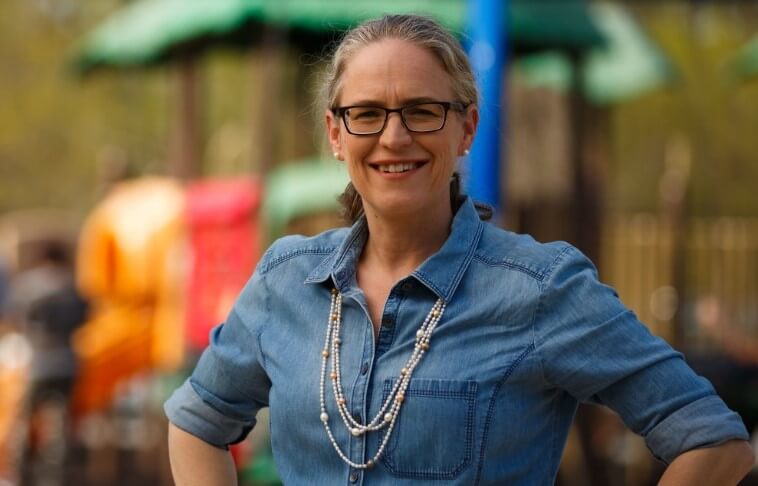
“One of the big issues was health care reform; my own parents struggled with the cost of prescription medications, using up all of their discretionary income to pay for my father’s insulin and other medications.”
Merion West’s Henri Mattila was joined for a December 11th interview with Carolyn Bourdeaux, who recently defeated Republican opponent, Rich McCormick, to represent Georgia’s 7th Congressional District. Notably, Representative-elect Bourdeaux was the only member of the Democratic Party to flip a House seat from red to blue during last month’s general election. During the conversation, Representative-elect Bourdeaux outlines the key initiatives she plans to pursue when her first term begins in January. She also describes areas where she hopes to find common ground with colleagues on the other side of the aisle. Additionally, Representative-elect Bourdeaux explains why she believes Georgia will continue to send more Democrats to Congress in coming elections, as well as why she is optimistic about the future of the country.
Carolyn Bourdeaux, thank you so much for joining me today, and congratulations on your victory.
Glad to be here. Thanks for the invitation.
What inspired you to run for office in the first place?
I live in Suwanee, Georgia with my husband and eight-year-old son, and I teach at Georgia State at the Andrew Young School of Policy Studies and have been involved in public service for most of my life. And there was just this moment where it seemed to me that our elected officials have lost their line of sight to the people of this district and of this country. One of the big issues was health care reform; my own parents struggled with the cost of prescription medications, using up all of their discretionary income to pay for my father’s insulin and other medications.
And we just kept struggling with these issues, and the problems were not being solved. So one of the big issues that I ran on originally (and continue to talk about a lot) is health care reform—and how we need to make sure that everyone has quality, affordable health care.
Are there any policies or new legislation, in particular, that you support in terms of health care reform?
So what I saw was really the destruction of the Affordable Care Act; Georgia did not expand Medicaid, for instance. Because of that, the state returned to the federal government between $2.2 and $3 billion a year, around 500,000 people in this state do not have health insurance because of that choice. That was a real issue for me. And then people in this district pay very, very high rates for health insurance. Again, there’s that issue of prescription medications. So what I’d like to see is to go back and actually implement the Affordable Care Act, the way it was intended, make sure it is funded, make sure we have the different pieces in place, and then introduce a public option to the exchange so that everybody has a low-cost alternative that they can opt into.
Do you think that is feasible in the current political climate, especially if the Republicans control the Senate?
It would require really coming together as a country to solve that problem. We have a lot of people, though, that are really suffering in this district; over 100,000 people don’t have health insurance. And that was before COVID hit. Now, that situation is almost certainly much, much worse. I think one of the things that has come out of this crisis is the recognition of the very big gaping holes that are in our social safety net, as well as how interconnected we are. If my neighbor coughs, I can get sick. So it matters to me whether my neighbor has health insurance and is able to go see a doctor. And so I hope we can use this moment of crisis to come together to solve this problem.
Speaking of Georgia, I want to point out that you were the only Democratic candidate to flip a battleground seat in the House; that’s quite an accomplishment. Georgia also turned out to be much more of a battleground state than some Republicans may have expected. What do you think the trajectory is for Georgia’s political future?
Well, what we’re able to do in this district—and what happened in this district—affected what happened in the state. We were really engaged, growing a very diverse group of voters in a way that had not been done previously.
So I ran back in 2018. And I ran against a four-term Republican incumbent who’d never gotten below 60% of the vote. And we just reached out to people who had never talked to a Democratic candidate before; we knocked on doors where nobody had ever knocked before. And so that was a very important moment.
We made huge strides in that 2018 race; we closed a 20 percentage point gap. I came within 433 votes of flipping this seat in the closest race in the country. And after that, we turned around things in 2020 and continued to build on that momentum. And what we had was a demographic shift happening within this district, combined with a very vigorous and strong campaign of grassroots outreach, to engage people and engage that demographic shift. I can give you a few numbers that illustrate the point:
We had over 150,000 new registered voters in this district between 2016 and 2020. In the primary that I ran in on June 9th, 85,000 people voted, and that was up from 30,000 in 2018. And over 50% had never voted in the Democratic primary before. We turned again to the November 3 election and had an extraordinary turnout within the district. About 30% of those voting had not voted in 2016. So they’re just a lot of new people coming into the electorate.
Is this grassroots organizing the reason that the Democratic Party did so well in your state in this election, and would you credit Stacey Abrams’ initiatives and efforts for this?
Stacey Abrams was a significant part of it. And part of our effort in 2018 was to amplify her efforts in the 7th District and build on what she was working on. And [we did] the same thing again in 2020. It was my campaign; it was Stacey Abrams. It was many state House and Senate candidates who were extraordinarily good candidates and very hard working, who reached out to the diverse communities of Georgia’s 7th District.
Do you expect the blue trend to continue in Georgia, if Democrats continue organizing at such a grassroots level?
Absolutely. So what you’re seeing is very rapid change in the northern suburbs, in particular, of the Atlanta area—and just a very vigorous set of community organizations and campaigns that are engaging the communities here. But also, we’ve had just a wonderful set of engagements all across the state as well. But some of the biggest shifts are happening here.
The country has had high levels of polarization in recent years, and Joe Biden ran on a platform of governing as a unifying president. There are some whispers that Congress will work together a little bit more now as well; compromise will be a word that a lot of people will be looking for. Are there any particular initiatives or legislation where you hope that you can find bipartisan support?
Absolutely. And while we did this, you know, very robust outreach across this district, I ran on a message of being a problem solver. And another characteristic of this district in this area is they are practical, middle-class families who want to see their problems fixed. And we have gone for decades now, on the health care issue, where we all know it is not working. We all know that we are struggling with this system, and somehow we can’t crack through. And so I am very hopeful that we can come together and work on solving the problem. I have already started to talk to people in the business community about the issues around small businesses and small business health care, which I think is an area that both Democrats and Republicans can certainly work on together.
In the freshman class of incoming members, we have talked about being a class that is a bridging class, a class that bridges the divides within the Democratic Party, which is very, very diverse, as many people coming from different perspectives—but also reaching across the aisle to bring people together to solve these really, really fundamental problems.
With a dearth of proposals coming from the Republicans on health care and the parallel rise of the gig economy (with an increasing number of people lacking company-provided health insurance), do you expect your colleagues on the Republican side to support some kind of public option?
I absolutely think they will. And we don’t have to call it Obamacare or the Affordable Care Act; we can rename it. But the Affordable Care Act was the market-based solution to health care reform. And it was developed by Republicans, something that I talk about quite a bit. This came out of the Heritage Foundation. It was originally proposed in its original form by Newt Gingrich and was passed in the state of Massachusetts by the Republican Governor Mitt Romney. So I think that foundation is one that draws on competition—and a lot of philosophical ideas that Republicans support, and many Democrats such as myself do, as well.
And, you know, adding the public option is a model that we actually have in place in Medicare right now. These are not dramatic ideas that are any huge break from our current public policy. So I think there are all sorts of options for coming together and solving this issue.
There has been a lot of negativity in the news, whether it’s the Coronavirus, or battles surrounding the results of this election, or a whole host of other things happening in the world. What are you most optimistic about for the future?
I am deeply hopeful about the next generation of leaders who are coming into the political process and into the community during the Black Lives Matter movement. We had rallies in every single city in the 7th District. They were often started just by a high school student, or a college student posting on Facebook, Twitter, Instagram, saying, “Meet me in the city center,” and thousands of people showed up just spontaneously from very diverse backgrounds, to support our black friends and neighbors and to call for a more just society. And the young person who would organize a rally would often come out, and they just had a mic and a little handheld microphone speaker; [it] was nothing fancy. But it was the most moving set of experiences I have ever had. And I hope that we can return to that moment to come together in that way as a community. And I think young people are going to be a very central part of that change in the country.
Thank you for joining me here today, and I hope to speak again in the future.
I appreciate that, thank you for having me.










